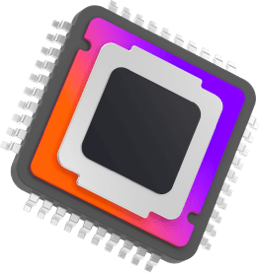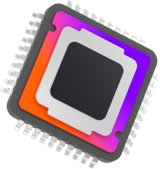| Apple M2 Max (38-GPU) | Apple M2 Pro (12-CPU 19-GPU) | |
| 0 | Max TDP | 0 |
| NA | Stromverbrauch pro Tag (kWh) | NA |
| NA | Laufende Kosten pro Tag | NA |
| NA | Stromverbrauch pro Jahr (kWh) | NA |
| NA | Laufende Kosten pro Jahr | NA |
Apple M2 Max (38-GPU) vs Apple M2 Pro (12-CPU 19-GPU)

Der Apple M2 Max (38-GPU) arbeitet mit 12 Kernen und 12 CPU-Threads. Es wird an der 3.50 GHz -Basis 2.80 GHz aller Kerne ausgeführt, während die TDP auf 45 W .Der Prozessor ist an den -- CPU-Sockel angeschlossen. Diese Version enthält -- L3-Cache auf einem Chip, unterstützt 4 (Quad Channel) -Speicherkanäle zur Unterstützung von LPDDR5-6400 RAM und verfügt über PCIe Gen -Lanes. Tjunction bleibt unter 100 °C Grad C. Insbesondere M2 Architektur wird mit 5 nm Technologie erweitert und unterstützt Apple Virtualization Framework . Das Produkt wurde am Q1/2023

Der Apple M2 Pro (12-CPU 19-GPU) arbeitet mit 12 Kernen und 12 CPU-Threads. Es wird an der 3.50 GHz -Basis 2.80 GHz aller Kerne ausgeführt, während die TDP auf 45 W .Der Prozessor ist an den -- CPU-Sockel angeschlossen. Diese Version enthält -- L3-Cache auf einem Chip, unterstützt 2 (Dual Channel) -Speicherkanäle zur Unterstützung von LPDDR5-6400 RAM und verfügt über PCIe Gen -Lanes. Tjunction bleibt unter 100 °C Grad C. Insbesondere M2 Architektur wird mit 5 nm Technologie erweitert und unterstützt Apple Virtualization Framework . Das Produkt wurde am Q1/2023
Apple M2 Max (38-GPU)
Apple M2 Pro (12-CPU 19-GPU)
Detail vergleichen
| 3.50 GHz | Frequenz | 3.50 GHz |
| 12 | Kerne | 12 |
| 3.50 GHz | Turbo (1 Kern) | 3.50 GHz |
| 2.80 GHz | Turbo (alle Kerne) | 2.80 GHz |
| Hyperthreading | No | |
| Übertakten | No |
|
| hybrid (big.LITTLE) | Kernarchitektur | hybrid (big.LITTLE) |
| Apple M2 Max (38 Core) | GPU | Apple M2 Pro (19 Core) |
| No turbo | GPU (Turbo) | No turbo |
| 5 nm | Technologie | 5 nm |
| No turbo | GPU (Turbo) | No turbo |
| DirectX-Version | ||
| 2 | Max. Anzeigen | 2 |
| LPDDR5-6400 | Erinnerung | LPDDR5-6400 |
| 4 (Quad Channel) | Speicherkanäle | 2 (Dual Channel) |
| Maximaler Speicher | ||
| ECC | No |
|
| 36.00 MB | L2 Cache | 36.00 MB |
| -- | L3 Cache | -- |
| PCIe-Version | ||
| PCIe lanes | ||
| 5 nm | Technologie | 5 nm |
| -- | Steckdose | -- |
| TDP | ||
| Apple Virtualization Framework | Virtualisierung | Apple Virtualization Framework |
| Q1/2023 | Veröffentlichungsdatum | Q1/2023 |
Cinebench R23 (Single-Core)
Cinebench R23 ist der Nachfolger von Cinebench R20 und basiert ebenfalls auf der Cinema 4 Suite. Cinema 4 ist eine weltweit verwendete Software zum Erstellen von 3D-Formularen. Der Single-Core-Test verwendet nur einen CPU-Core, die Anzahl der Kerne oder die Hyperthreading-Fähigkeit zählen nicht.
Cinebench R23 (Multi-Core)
Cinebench R23 ist der Nachfolger von Cinebench R20 und basiert ebenfalls auf der Cinema 4 Suite. Cinema 4 ist eine weltweit verwendete Software zum Erstellen von 3D-Formularen. Der Multi-Core-Test umfasst alle CPU-Kerne und bietet einen großen Vorteil beim Hyperthreading.
Geekbench 5, 64bit (Single-Core)
Geekbench 5 ist ein plattformübergreifender Benchmark, der den Systemspeicher stark beansprucht. Eine schnelle Erinnerung wird das Ergebnis stark beeinflussen. Der Single-Core-Test verwendet nur einen CPU-Core, die Anzahl der Kerne oder die Hyperthreading-Fähigkeit zählen nicht.
Geekbench 5, 64bit (Multi-Core)
Geekbench 5 ist ein plattformübergreifender Benchmark, der den Systemspeicher stark beansprucht. Eine schnelle Erinnerung wird das Ergebnis stark beeinflussen. Der Multi-Core-Test umfasst alle CPU-Kerne und bietet einen großen Vorteil beim Hyperthreading.
iGPU - FP32 Performance (Single-precision GFLOPS)
Die theoretische Rechenleistung der internen Grafikeinheit des Prozessors mit einfacher Genauigkeit (32 Bit) in GFLOPS. GFLOPS gibt an, wie viele Milliarden Gleitkommaoperationen die iGPU pro Sekunde ausführen kann.
Estimated results for PassMark CPU Mark
Einige der unten aufgeführten CPUs wurden durch CPU-Vergleich bewertet. Die meisten CPUs wurden jedoch nicht getestet, und die Ergebnisse wurden anhand der geheimen proprietären Formel eines CPU-Vergleichs geschätzt. Als solche spiegeln sie die tatsächlichen Passmark-CPU-Markierungswerte nicht genau wider und werden von PassMark Software Pty Ltd. nicht unterstützt.

Schätzung des Stromverbrauchs


